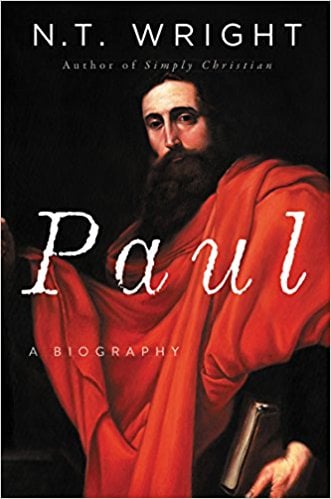Q. I would say that the last enduring life of Paul from our general neighborhood was F.F. Bruce’s Paul: Apostle of the Heart Set Free (American title). Bruce focuses far more on the historical particularly and context, but your biography of Paul, while not neglecting the essential historical framework and particulars, in some ways is a much more theological biography than Bruce’s. Were you consciously striving for a more theological approach to his life and work, perhaps with one eye on some of the shortcomings of earlier treatments?
A. I wasn’t really comparing this book with earlier treatments, but I did many times check back to F. F. Bruce (I reviewed that book when it came out in the 1970s!) even though of course I disagree with him quite a bit. Bruce wasn’t really a theologian so, yes, I wanted to draw out that side of course, but it still really matters that we understand the actual historical and cultural setting . . .
Q. How one assesses Paul’s life is certainly in part determined, or at least guided by how one arranges the chronological order of his letters, and how much weight one gives to these different letters. Perhaps the big change from the traditional ordering is your ‘guess’ (as you call it at one juncture in the book) that Paul was imprisoned in Ephesus and wrote the captivity epistles (Philippians, Philemon, Colossians, Ephesians) from there. What finally persuaded you this was a better option than his writing them later from Rome, and since the content of the letters is the same either way, how do you think this decision changes your view of Paul’s life? Does it change it in any important way?
A. When I said ‘guess’ I meant that in the historian’s sense of ‘informed intelligent guesswork’ based on a careful assessment of all the evidence . . . not in the other sense of ‘guess’ which would be taking a deep breath and plucking a card out of a hat! The point is that we have no primary, solid evidence for the location of those four letters. But I work up from the fact that Paul tells Philemon he’s coming to see him as soon as he gets out of jail – and Philemon lives in Colossae. The natural place therefore is Ephesus; Colossians is a companion piece; Ephesians is a circular written close up to Colossians. Philippians is trickier but Paul speaks of coming to see them, too, after release – which sits better with Ephesus than any of the alternatives. I put this together with 2 Cor 1 (see below) where Paul speaks of terrible suffering in Ephesus; I think Luke passed over that in silence.













